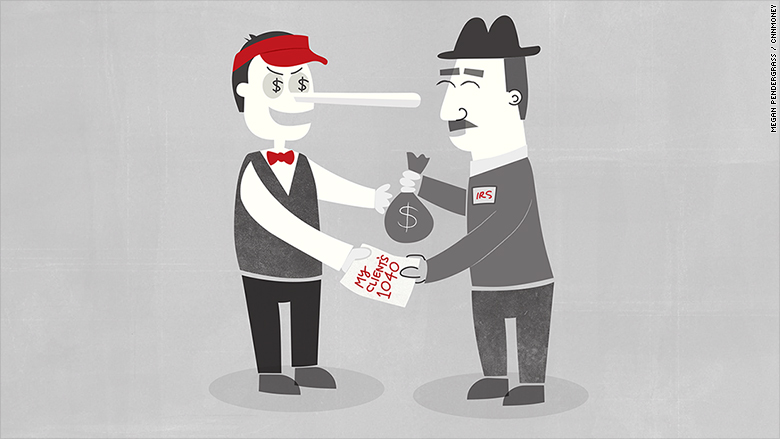
Most people who want to cheat on their taxes will do anything they can to understate their income. After all, the more you make, the more you'll likely to owe.
But there's at least one scam where an unscrupulous tax preparer will try to inflate a clients' income, the IRS said.
Here's why: Some people make too little to owe any federal income taxes, but may still qualify for a refund by claiming certain refundable credits, like the Earned Income Tax Credit (EITC).
To make sure their client gets the maximum amount, some tax preparers will report that they earned more than they actually did.
For instance, a couple with two kids who earned between $13,650 and $23,300 in 2014 wouldn't owe any federal income taxes but could get a maximum of $5,460 from the EITC, said Mark Luscombe, principal federal tax analyst for tax publisher Wolters Kluwer, CCH.
But if they earned less than $13,650, they wouldn't get that maximum refund amount, Luscombe said.
Related: Beware promises of 'outlandish' refunds
So by falsely inflating their income to, say, $14,000, they could qualify for the full $5,460.
Another credit where it may be possible to carry out this type of scam is the refundable portion of the Child Tax Credit, Luscombe said. That refundable portion is also tied to earned income and is intended to help offset the cost of raising children for the lowest income families.
What does the tax preparer get out of the deception? A bigger fee. Typically such preparers will take their fee out of the refund.
And the bigger the refund, the bigger the potential fee.
But if they're caught, the low-income couple will be on the hook. Everyone is legally responsible for what's on their tax return, regardless of who prepared it. Ramifications include having to repay the erroneous refund, including interest and penalties, the IRS said.
